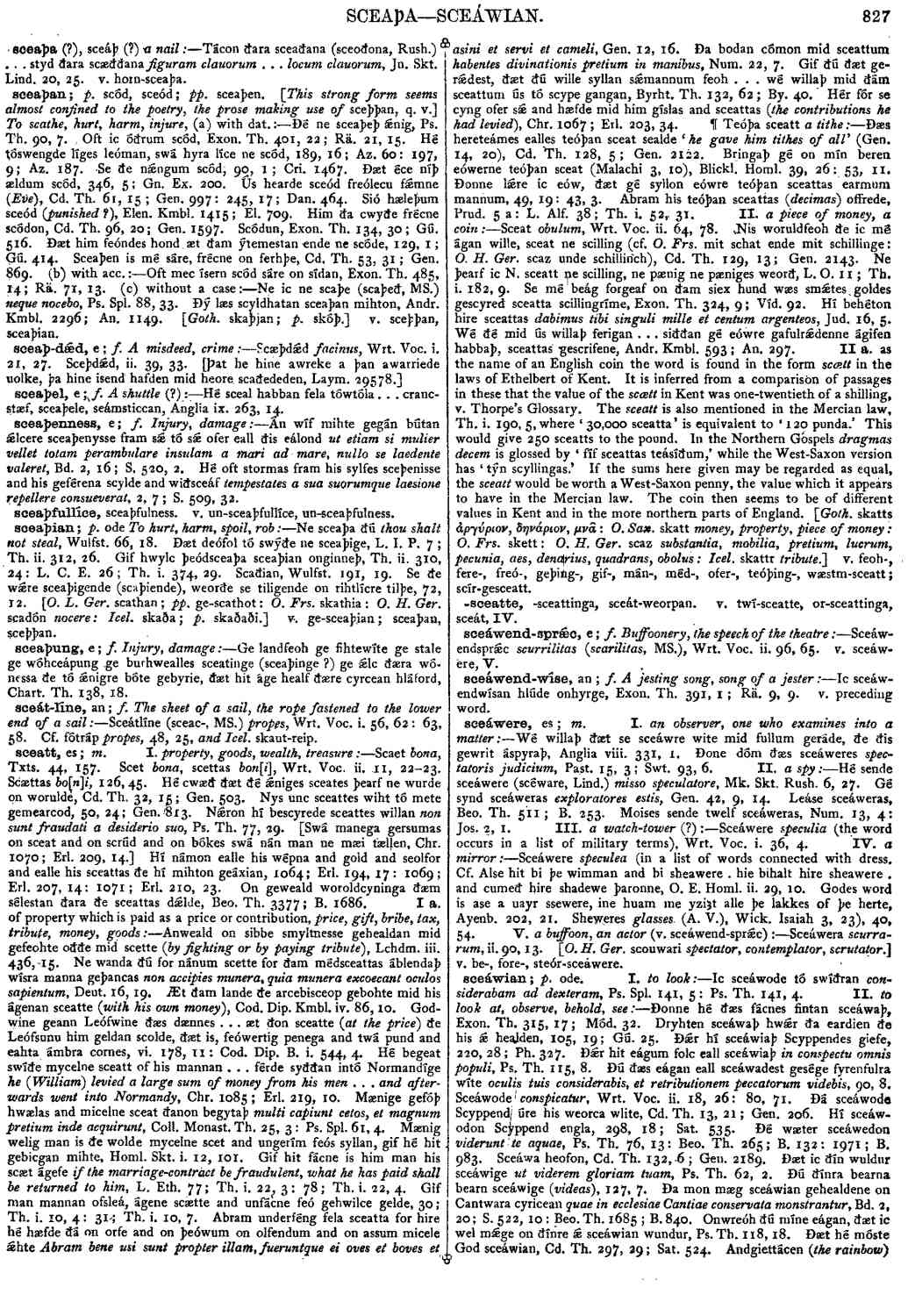sceaþan
- verb [ strong ]
-
Ðé ne sceaþeþ ǽnig,
- Ps. Th. 90, 7.
-
Oft ic ó;ðrum scód,
- Exon. Th. 401, 22; Rä. 21, 15.
-
Hé tóswengde líges leóman, swá hyra líce ne scód,
- 189, 16; Az. 60: 197, 9; Az. 187.
-
Se ðe nǽngum scód,
- 90, l; Cri. 1467.
-
Ðæt éce níþ ældum scód,
- 346, 5; Gn. Ex. 200.
-
Ús hearde sceód freólecu fǽmne (
Eve
),- Cd. Th. 61, 15; Gen. 997: 245, 17; Dan. 464.
-
Sió hæleþum sceód (
punished?
),- Elen. Kmbl. 1415; El. 709.
-
Him ða cwyðe frécne scódon,
- Cd. Th. 96, 20; Gen. 1597.
-
Scódun,
- Exon. Th. 134, 30; Gú. 516.
-
Ðæt him feóndes hond æt ðam ýtemestan ende ne scóde,
- 129, 1; Gú. 414.
-
Sceaþen is mé sáre, frécne on ferhþe. Cd. Th. 53,
- 31; Gen. 869.
-
Oft mec ísern scód sáre on sídan,
- Exon. Th. 485, 14; Rä. 71, 13.
-
Ne ic ne scaþe (scaþeð, MS.)
neque nocebo,
- Ps. Spl. 88, 33.
- Ðý læs scyldhatan sceaþan mihton. Andr. Kmbl. 2296; An. 1149.
Bosworth, Joseph. “sceaþan.” In An Anglo-Saxon Dictionary Online, edited by Thomas Northcote Toller, Christ Sean, and Ondřej Tichy. Prague: Faculty of Arts, Charles University, 2014. https://bosworthtoller.com/26632.
Checked: 0